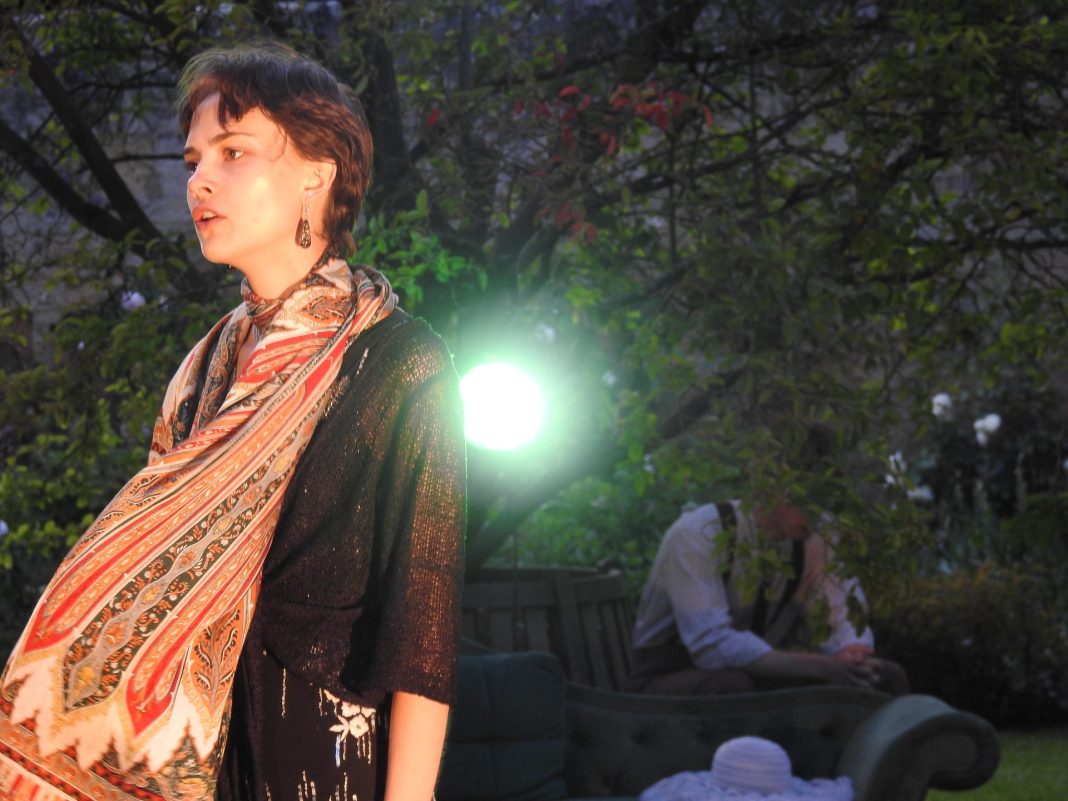Sophia Eiden’s production of Simon Levy’s script of The Great Gatsby is an undoubted triumph. I was, if only for a moment, transported back to the Roaring Twenties; to a bygone era of excess, extravagance, and endless exhilaration. The setting of Trinity College gardens only heightened this sense of temporal dislocation. One could easily imagine such scenes playing out there a century ago. The costume and set design team, led by Mikela Persson Caracciolo and Naomi Flexman, struck a delicate balance: faithful to the period yet refreshingly tasteful to the modern eye. Most impressive of all was the live band – a rarity in student theatre – which injected the performance with an energy and vibrancy that elevated the entire production.
Directors Izzy Moore and George Loynes have coaxed exuberant, nuanced performances from the cast. Isabel Clarke imbued Daisy with such quiet anguish that even the glint in her eyes seemed to ache, pulling the audience into her heartbreak. In her, I could feel – and I don’t know whether this was intentional – fragments of a certain Princess of Wales, who was equally trapped in a loveless marriage. Alexander McCallum brought a nervy, moral intensity to Nick Carraway, exposing the shallowness of the Jazz Age with each incredulous glance. I was left utterly terrified by Gillies MacDonald’s Tom Buchanan, whose handsome rage was both palpable and authentic, whose silence often spoke louder than his words.
Less convincing, however, was Dominic Murphy-O’Connor’s portrayal of the titular character, Gatsby. At pivotal moments, his performance faltered; not for lack of talent, but for a want of emotional depth. Some of his most charged scenes were undermined by audience laughter, and the lack of chemistry between him and Clarke made their supposed romance difficult to believe. I was, however, moved by the love affair – albeit brief – between Nick Carraway and Tessa Yates’s Jordan Baker. Yates’s performance was sharp, poised, and deliciously sly; her Jordan had McCallum’s Nick chasing his own tail.
As great as the rest of the production was, I must express some misgivings about the choreography. The problem isn’t that Elektra Voulgari Cleare and the directors failed to create convincing movements that utilised the extraordinary space they were provided. Quite the contrary, in fact. The overall flow of the play and complete immersion of the audience from all directions were huge strengths of the production. However, the cast – especially the leads – did not seem to be very committed to the few dance sequences, and it gave the impression that dancing was a box to tick rather than an extension of the performance.
The true standout performances of the show, however, were those of Jane Brenninkmeyer and Fynn Hyde. Brenninkmeyer’s short but powerful portrayal of Myrtle moments before her death sends shockwaves through your bones and brought me to the verge of tears. I could feel her (and George Eustance’s George B Wilson’s) desperation in their circumstances and the feeling that they’ve lost control over their own lives. At the same time, I was completely mesmerised by Hyde’s Chester McKee. Though the role was minor, Hyde brought compelling complexity and fantastic flair to a character who has long intrigued readers, myself included, and he offered a version of McKee that was richly idiosyncratic. In some ways, Hyde was exactly how I had imagined Mr McKee, and more.
Altogether, this production is a dazzling indulgence, a celebration of all that makes Fitzgerald’s work so enduring. Everyone involved should be deeply proud. For those lucky enough to catch it, this is a Gatsby worth getting lost in.


